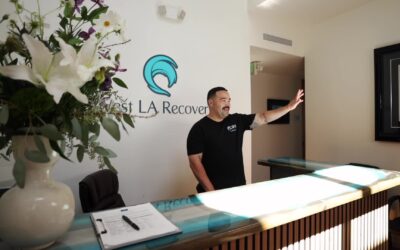Taking the first step toward addiction recovery through therapy is a powerful decision that marks the beginning of your healing journey. Your initial therapy session creates the foundation for your recovery process, setting the tone for future therapeutic work.
During your first session, you’ll meet with a qualified addiction therapist who will:
- Create a welcoming, non-judgmental environment
- Listen to your concerns and experiences
- Begin developing a personalized treatment strategy
- Answer your questions about the therapy process
Three primary therapy formats to support your recovery:
Individual Therapy: One-on-one sessions provide focused attention on your specific challenges and goals, allowing for deep personal exploration in a private setting.
Group Therapy: Structured group sessions connect you with others facing similar challenges, offering peer support and shared learning experiences.
Family Counseling: Sessions involving family members help repair relationships and build a strong support system for your recovery journey.
Your first session typically lasts 50-60 minutes. You’ll discuss your current situation, substance use patterns, and what you hope to achieve through therapy. This initial meeting helps determine the most effective treatment approach for your unique needs.
Remember: There’s no need to feel nervous – you’re taking a brave step toward positive change, and we’re here to support you every step of the way.
Comprehensive Assessment During the First Session
Your first therapy session includes a thorough evaluation of your substance use patterns and history. You’ll discuss specific substances used, frequency of use, and any previous attempts at recovery. This helps create a clear picture of your unique situation and needs.
The assessment covers:
- Medical History: Physical health conditions, medications, and previous treatments
- Family Background: Family history of addiction or mental health issues
- Mental Health Screening: Signs of depression, anxiety, or other co-occurring conditions
- Current Life Situation: Work, relationships, living conditions, and support systems
We use standardized criteria from the Diagnostic and Statistical Manual (DSM-5) to identify substance use disorder symptoms, including:
- Tolerance development
- Withdrawal experiences
- Impact on daily responsibilities
- Changes in social activities
- Physical or psychological problems
This comprehensive evaluation helps determine the most effective treatment approach for your recovery journey. Your honest responses during this assessment are crucial for developing a personalized treatment strategy that addresses your specific challenges and goals.
Setting Clear and Personalized Therapy Goals
Your recovery journey begins with setting realistic, achievable goals. We help you create a personalized roadmap that addresses your specific needs and circumstances.
Short-term objectives typically include:
- Reducing substance use frequency
- Learning specific coping mechanisms
- Managing withdrawal symptoms
- Identifying and avoiding triggers
- Establishing healthy daily routines
- Building support networks
Long-term goals focus on sustainable transformation:
- Maintaining complete sobriety
- Rebuilding relationships
- Developing career stability
- Improving physical and mental health
- Creating meaningful life purpose
- Preventing relapse through ongoing strategies
We use the SMART goal-setting framework to ensure your objectives are Specific, Measurable, Achievable, Relevant, and Time-bound. This structured approach helps track your progress and adjust strategies when needed.
Your goals may evolve throughout therapy as you gain insights and develop new skills. We regularly review and refine these objectives to align with your changing needs and progress in recovery.
To facilitate this process, we often incorporate elements from cognitive behavioral therapy (CBT), which is highly effective in treating various disorders. You can find more about how we utilize CBT techniques in our therapy sessions.
Explanation of Therapy Process and Interventions
Your addiction therapy sessions incorporate proven therapeutic approaches tailored to your recovery needs.
Cognitive-behavioral therapy (CBT)
Cognitive-behavioral therapy (CBT) helps you identify and change negative thought patterns linked to substance use. Through CBT, you’ll learn to:
- Recognize triggers that lead to substance use
- Develop healthy coping mechanisms
- Challenge and restructure harmful beliefs
- Create effective problem-solving strategies
Dialectical behavior therapy (DBT)
Dialectical behavior therapy (DBT) provides essential skills for emotional regulation during recovery. DBT techniques include:
- Mindfulness practices to stay present-focused
- Distress tolerance skills to manage intense urges
- Interpersonal effectiveness to build stronger relationships
- Emotional regulation strategies to handle difficult feelings
These therapeutic approaches work together to give you practical tools for managing addiction. You’ll practice these techniques during sessions and apply them in real-world situations, strengthening your ability to maintain sobriety and improve your mental well-being.
Additionally, the integration of evidence-based practices into your therapy can further enhance the effectiveness of these interventions, providing a solid foundation for your recovery journey.
Building a Therapeutic Relationship and Establishing Trust
The therapeutic alliance in addiction therapy forms the foundation of your recovery journey. Your therapist creates a judgment-free environment where you can express your thoughts, fears, and struggles openly. This safe space allows you to:
- Share past experiences without shame
- Discuss current challenges honestly
- Ask questions about your treatment
- Voice concerns about recovery
Your privacy remains our top priority. We maintain strict confidentiality standards that protect:
- Your personal information
- Session discussions
- Medical records
- Communication between sessions
The only exceptions to confidentiality involve situations where:
- There’s immediate risk of harm to yourself or others
- Legal requirements mandate reporting
- You provide written consent for information sharing
Trust builds gradually through consistent support, validation, and respect for your unique recovery path. Your therapist adapts their approach to match your comfort level, ensuring you feel heard and understood throughout treatment.
Introduction to Addiction Support Groups as Part of Therapy
Support groups play a vital role in your recovery journey. You’ll discover various types of groups tailored to specific needs:
- 12-Step Programs like AA and NA provide structured recovery paths
- SMART Recovery offers science-based addiction management techniques
- Women’s/Men’s Groups address gender-specific challenges
- Family Support Groups help loved ones understand addiction
These groups create powerful healing environments where you connect with others who truly understand your experiences. You’ll gain practical insights from peers who’ve faced similar challenges and achieved sobriety.
Support group benefits include:
- Real-world recovery strategies that work
- 24/7 community support when you need it
- Accountability partnerships
- Reduced isolation feelings
- Practical coping mechanisms
At West LA Recovery, we help you find addiction support groups near me that match your specific needs and recovery goals. Your Addiction Therapy journey becomes stronger through these valuable community connections.
Addressing Social and Psychological Causes During Therapy
Your addiction therapy sessions will explore the complex social and psychological factors that influence substance use. Social pressure often plays a significant role – from workplace stress to relationship dynamics and peer influences that can trigger addictive behaviors.
We’ll help you identify specific environmental triggers in your daily life:
- Workplace stress and professional demands
- Family relationships and expectations
- Social circles that enable substance use
- Cultural influences and societal pressures
Genetic factors also shape your relationship with substances. Research shows that hereditary traits can increase susceptibility to addiction by up to 60%. You’ll gain insights into your family history and genetic predispositions, helping you understand:
- Inherited risk factors
- Genetic variations affecting substance responses
- Family patterns of addictive behaviors
Through targeted discussions, you’ll develop awareness of these underlying causes and learn practical strategies to navigate social situations while maintaining your recovery goals.
Managing Symptoms Related to Addiction in Therapy Sessions
Physical symptoms of addiction can be challenging to navigate during recovery. Our therapy sessions incorporate proven withdrawal relief strategies to help you manage discomfort and build resilience.
Your therapist will guide you through specific techniques:
- Deep breathing exercises to reduce anxiety and physical tension
- Progressive muscle relaxation for managing body aches
- Mindfulness practices to cope with cravings
- Sleep hygiene routines to improve rest quality
- Stress management tools to minimize withdrawal intensity
We’ll help you understand your body’s response to substance reduction and teach you to recognize early warning signs of withdrawal. You’ll learn practical coping mechanisms to handle:
- Muscle tension and physical discomfort
- Sleep disturbances
- Changes in appetite
- Mood fluctuations
- Energy level variations
Your therapist will work with you to develop a personalized symptom management plan, adjusting strategies as your tolerance levels change throughout recovery. This approach ensures you have the tools needed to handle physical challenges while maintaining your progress.
Scheduling Follow-Up Appointments for Continued Progress Monitoring in Recovery Sessions
Regular follow-up sessions at West LA Recovery are essential for achieving long-term success in recovery. During these sessions, we track your progress by:
- Measuring achievements against initial recovery goals
- Identifying new challenges that arise during sobriety
- Refining coping strategies based on real-life experiences
- Adjusting medication management when necessary
As your recovery journey progresses, so does your treatment plan. Our therapists modify your ongoing addiction therapy sessions to address:
- Changes in stress levels or triggers
- Development of new recovery skills
- Shifts in personal circumstances
- Progress in managing co-occurring conditions, such as the impact of trauma on addiction
We recommend scheduling your next appointment before leaving each therapy session. This practice helps maintain momentum in your recovery journey and ensures continuous support when you need it most. You’ll work directly with your therapist to determine how often you should have sessions based on your current needs and progress in recovery.
For any questions or to schedule an appointment, feel free to contact us through our contact page. It’s important to understand the difference between rehab and rehabilitation, as this can greatly impact your recovery path. We provide guidance on this topic as part of our comprehensive support at West LA Recovery.







